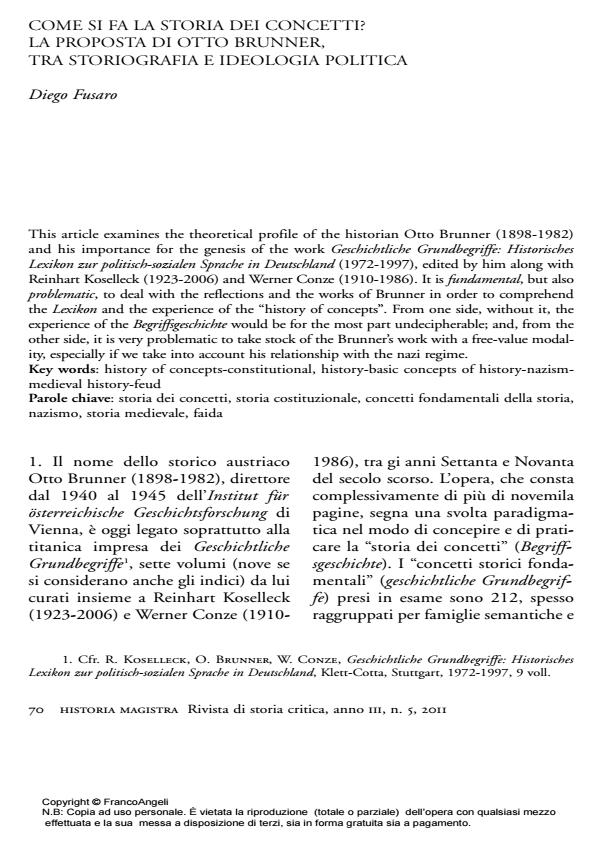Come si fa la storia dei concetti? La proposta di Otto Brunner, tra storiografia e ideologia politica
Titolo Rivista HISTORIA MAGISTRA
Autori/Curatori Diego Fusaro
Anno di pubblicazione 2011 Fascicolo 2011/5
Lingua Italiano Numero pagine 12 P. 70-81 Dimensione file 316 KB
DOI 10.3280/HM2011-005008
Il DOI è il codice a barre della proprietà intellettuale: per saperne di più
clicca qui
Qui sotto puoi vedere in anteprima la prima pagina di questo articolo.
Se questo articolo ti interessa, lo puoi acquistare (e scaricare in formato pdf) seguendo le facili indicazioni per acquistare il download credit. Acquista Download Credits per scaricare questo Articolo in formato PDF

FrancoAngeli è membro della Publishers International Linking Association, Inc (PILA)associazione indipendente e non profit per facilitare (attraverso i servizi tecnologici implementati da CrossRef.org) l’accesso degli studiosi ai contenuti digitali nelle pubblicazioni professionali e scientifiche
This article examines the theoretical profile of the historian Otto Brunner (1898-1982) and his importance for the genesis of the work Geschichtliche Grundbegriffe: Historisches Lexikon zur politisch-sozialen Sprache in Deutschland (1972-1997), edited by him along with Reinhart Koselleck (1923-2006) and Werner Conze (1910-1986). It is fundamental, but also problematic, to deal with the reflections and the works of Brunner in order to comprehend the Lexikon and the experience of the “history of concepts”. From one side, without it, the experience of the Begriffsgeschichte would be for the most part undecipherable; and, from the other side, it is very problematic to take stock of the Brunner’s work with a free-value modality, especially if we take into account his relationship with the nazi regime.
Parole chiave:Storia dei concetti, storia costituzionale, concetti fondamentali della storia, nazismo, storia medievale, faida
Diego Fusaro, Come si fa la storia dei concetti? La proposta di Otto Brunner, tra storiografia e ideologia politica in "HISTORIA MAGISTRA" 5/2011, pp 70-81, DOI: 10.3280/HM2011-005008